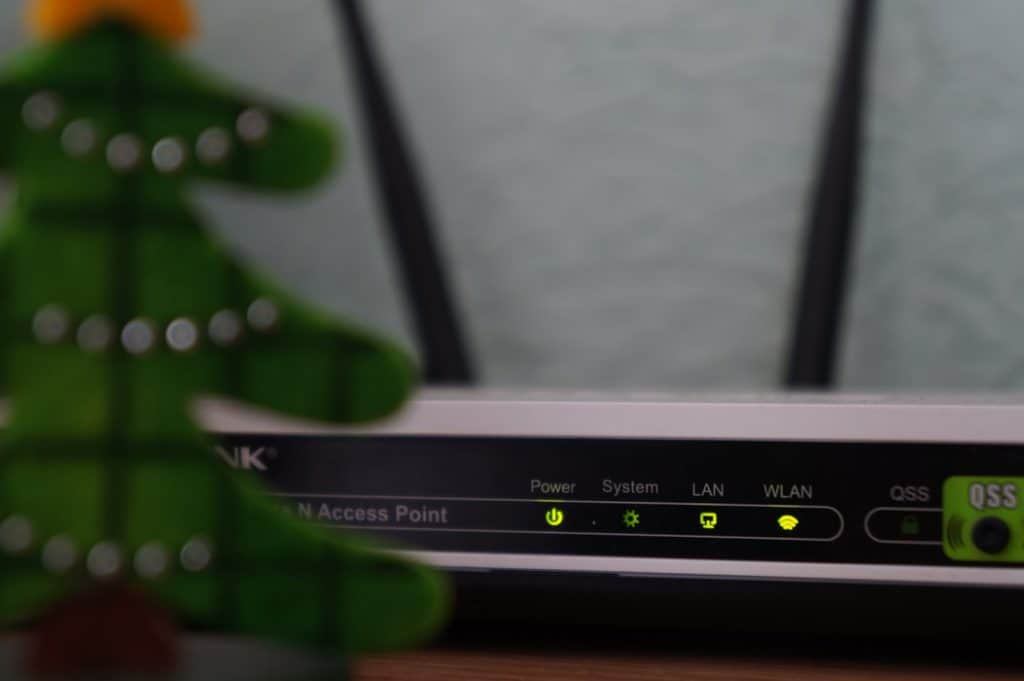How Long Does a Wireless Router Last?
- By Douglas Moore
- April 21, 2020
Disclosure: As a member of the Amazon Associates program, we earn from qualifying purchases. Some links in this guide are affiliate links. We may get paid if you buy something or take an action after clicking one of these links, at no additional cost to you. It’s how we fund the work that it takes for us to create and maintain these guides.
Table of Contents
You’re looking suspiciously at the old router in the corner of your living room, wondering if it’s past its heyday. Maybe your recent relationship with the internet has been on-again-off-again. Maybe you’re just wondering how much more mileage you can get out of that slightly dusty device. Or, you just bought a new wireless router with dual or tri-band frequencies, and are curious about how long it will stick around before having to deal with the headache of replacing it.
In short, the question circling in your mind is: how long does a wireless router last?
The short answer would be, at least several years. But “several years” in this case can mean four years, but it can also mean more than ten. In theory, a wireless router could last you for decades, considering that there’s next to zero moving parts in the device. However, factors such as quality, maintenance, and the development of technology all play a part in the lifespan of a router.
So let’s take a closer look at the lifespan of a wireless router, what affects its longevity, and what are the telltale signs that it’s time to buy a new one.
Do Routers Have a Lifespan?
We already said that due to the next-to-zero amount of moving parts in a router, it could technically last you a long, long time. However, the general lifespan of a router is considered to be about five years, give or take, although this can change depending on each individual scenario.

The main factors that affect the lifespan of a router have more to do with how it’s maintained, how much it’s being used, and whether or not its technology becomes obsolete. This last bit is quite important, and we’ll get into more details in a bit, but you could have a perfectly functioning router from the 90’s that’s no longer compatible with the latest Wi-Fi standards.
Most of today’s internet users use 2009’s Wi-Fi 802.11n, or the latest standard, 802.11ac (a.k.a. Wi-Fi 5) that came out in 2014. Wi-Fi 6 (802.11ax) is scheduled to arrive soon, too, so that’ll bring up a need for router updates for those that want to switch to higher internet data transfer rates, as Wi-Fi 6 is meant to be as fast as 9.6 Gbps.
What Affects the Lifespan of a Wireless Router?
Let’s look at the factors that affect the lifespan of a wireless router a bit more closely.
1. Evolving Technology
Wireless network standards and internet data transfer speeds have changed over the years. The frequencies that Wi-Fi standards use have changed to improve user experience. Routers that came before 2009’s 802.11n wireless standard don’t offer the same quality of internet speed. So, the most commonly used standards today are 802.11n and 802.11ac.
The 802.11n standard uses both the 2.4GHz and 5GHz frequencies, while 802.11ac uses only the 5GHz frequency, which is a lot less congested than 2.4GHz. Plus, 802.11ac supports MU-MIMO (multiple-input and multiple-output) technologies for simultaneous streaming better than 802.11n and employs beamforming, which ensures more efficient transmission.
So as you can see, there are already some advantages of the 802.11ac over the 802.11n that may prompt users to update their wireless router to support the 802.11ac wireless standard, or Wi-Fi 5.
Some households or offices that rely heavily on speedy and efficient internet data transfer may prefer to have dual-band or tri-band routers, especially if there are multiple users connected to the network. When considering a WiFi router for a small business, you might need want a model that supports multiple networks so that you can have separate networks for staff and guests.
2. Maintenance
A lot of the time, a well-maintained router can have a long lifespan, and simply become outdated by the evolving technology.
To increase your router’s lifespan, you should keep it in a dry environment out of direct sunlight. Additionally, avoid frequently taking the cables in and out of the router, as it can lead to premature wear and tear.
3. Usage
Even though there are no moving parts, an overused router can begin heating up frequently and break sooner than you’d wish. If there are multiple users hooked to your router simultaneously, or you often use a hard-wired connection for heavy data transfers, you should give your router a break every now and again, and allow it to cool down.
How do I Know If I Need A New Wireless Router?
Usually, either new technology will render your router obsolete or damage to the hardware will cause it to stop working properly.
In the first case, if you upgrade to a new internet plan or want to have the latest Wi-Fi standard which your old router doesn’t support, it’s time to get a new router. Additionally, different routers have different area coverages. So if you move from a smaller to a larger residence, your old router may not reach every room as efficiently.
In the second scenario, you may notice loose ports, frayed power cords, or worse yet, a flailing internet connection. If your Wi-Fi network keeps dropping, and you keep having to reset the router to get it back up, there’s a good chance that it’s time to replace it. Keep in mind that when buying a new router, you should be wary of the cheapest options – more often than not, you get what you pay for. A cheap router can mean cheap quality and a shorter, trouble-ridden lifespan.
Of course, we’d advise against needless waste. If your router’s working fine, but you have the hots for some new model that’s only slightly better, think twice about the unnecessary pollution that you’d be causing by throwing away a perfectly good router. Once you do decide to upgrade, find out what the e-waste disposal options are in your place of residence through the municipality or the local waste management service.
Domain Name Sanity is a participant in the Amazon Services LLC Associates Program, an affiliate advertising program designed to provide a means for sites to earn advertising fees by advertising and linking to Amazon.com. As an Amazon Associate we earn from qualifying purchases. Amazon and the Amazon logo are trademarks of Amazon.com, Inc. or its affiliates.
Last updated on April 10, 2024. Pricing Information and Product Images obtained from Amazon Product Advertising API.
View Related Articles

Best WiFi Router for Long Range: Reviews of Our Top Picks for 2020
A WiFi router is the staple of most modern homes. It allows you to form a network of your local devices and connect them to the internet. The best wireless routers will allow multiple users and devices to simultaneously stream, work, or game online seamlessly, without interruptions or lags.

Best Hardware Firewall: Reviews of Our Favorites for 2020
Homes and offices with multiple users and devices need strong security. Unfortunately, every device is a sort of a liability to your network, as cyber threats loom over even the most experienced of users. To ensure that your network is foolproof and safe, you’d need a combination of security tools: a software firewall, a router, and a hardware firewall.

Best WiFi Routers For Small Business: 2020 Reviews of Our Top Picks
Every small business needs to have a reliable and smooth internet connection. Whether you’re running a small bookshop, a cafe, or an accounting agency, you’ll need a secure network and a fast internet connection that has the capacity to support multiple users – including employees, clients, and guests.
This seems wildly off. I’m lucky if my wifi routers last 24 months, and I’m in a residence and keep the router in the basement where it’s cool. I also buy mid-level, brand-name routers.
Hey Keith,
Sorry to hear that your routers aren’t lasting too long. It really does depend on a lot of factors, including the distance to the devices and the quality of your mains power supply at your location.
I’ve personally had routers still alive after 5 or 6 years, and only replaced them due to newer WiFi technologies coming out.
– Kevin